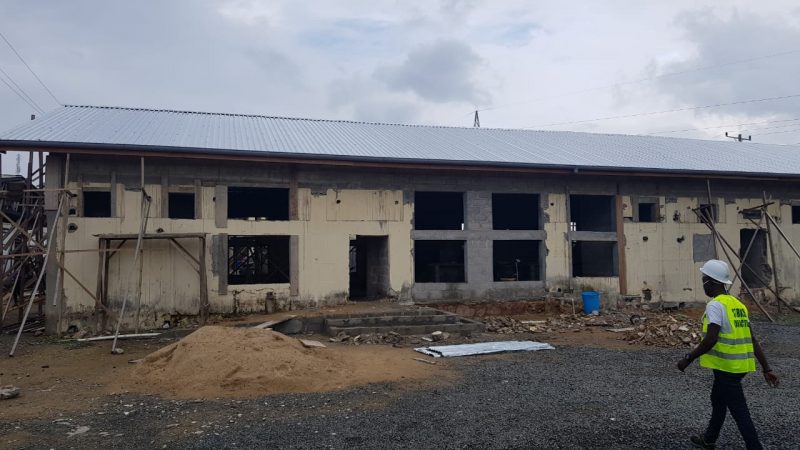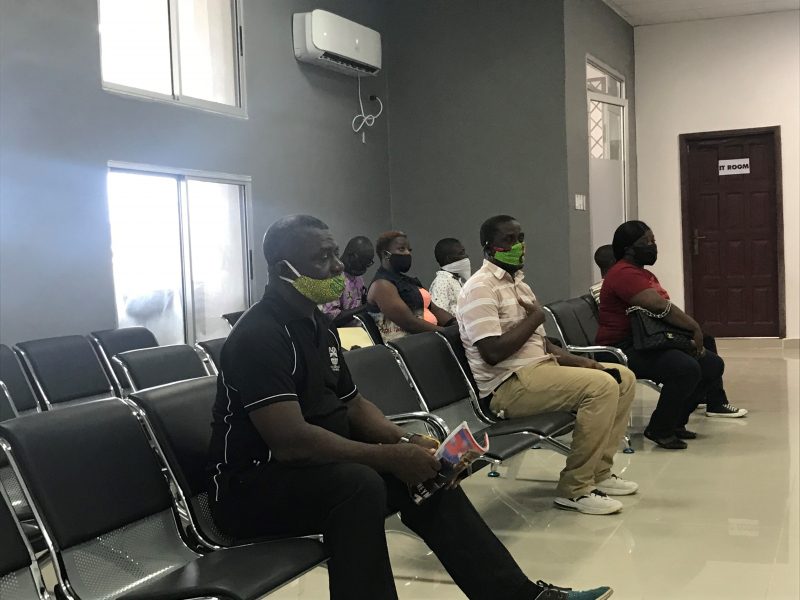
Prior to the MCC compact's refurbishment activity, the Liberia Electricity Corporation customer service center lacked basic services, resulting in an inefficient and uncomfortable customer experience.
When the Millennium Challenge Corporation (MCC) selected Liberia as eligible to develop a compact in 2012, lack of access to reliable and affordable electricity was identified as what was holding back economic growth. The bulk of MCC’s $257 million compact is investing in rehabilitating the Mount Coffee Hydropower Plant, an effort which has more than doubled Liberia’s generation capacity and improved reliability of energy supply.
The Challenges of Poor Customer Service
When MCC’s compact with Liberia began, the only way a customer could request an electricity connection or repair, or report a problem, was to physically visit LEC’s single customer service center. Customers would wait in long lines, often for more than a full day, regarding consistently unresolved complaints. Women tend to bear the brunt of these types of errands, so most of those awaiting service were women. Despite this, the center lacked basic services such as a women’s restroom. Behind the scenes, the whole customer service system was broken—the utility lacked the data and technology to access customer and asset records, making it nearly impossible to effectively serve customers.When MCC was designing interventions to ensure that compact investments would benefit women economically, it surveyed female entrepreneurs in newly or soon-to-be electrified corridors about their barriers to using electricity to generate income. Nearly all named poor customer service. When asked what kind of intervention would enable them to use electricity in their businesses, nearly all asked for more responsive customer service so that they could acquire and maintain working connections to the power grid.
The Far-Reaching Impacts of a Better Customer Service Center

The compact’s refurbishment activity has led to improved service at the Liberia Electricity Corporation customer service center, including shorter wait times and a safer, more comfortable building.
One customer, who has been a client of LEC since 2019, remarked that, “The new service center is very beautiful. Our waiting time is now much shorter than before. LEC can now address our problems much faster.”
Another customer from Central Monrovia agrees but also provided a suggestion for improvement. “I can see that the wait time has been reduced but [I hope] they introduce a numbering system so that those who come first are served first.”
MCC is supporting training for customer service department employees and providing technology investments which will allow the utility to link customer calls to account histories and LEC assets like meters and transformers. A massive, MCC-supported collection effort to populate LEC’s new database with data on its customers and assets is also underway. This will enable stronger customer service in the long term.
MCC integrates the social and gender dimensions when investing in changing what is holding back a partner country’s economy, including infrastructure and institutional capacity. Sometimes, seemingly simple fixes, such as better customer service, can have long-term repercussions for a country’s economic growth.

